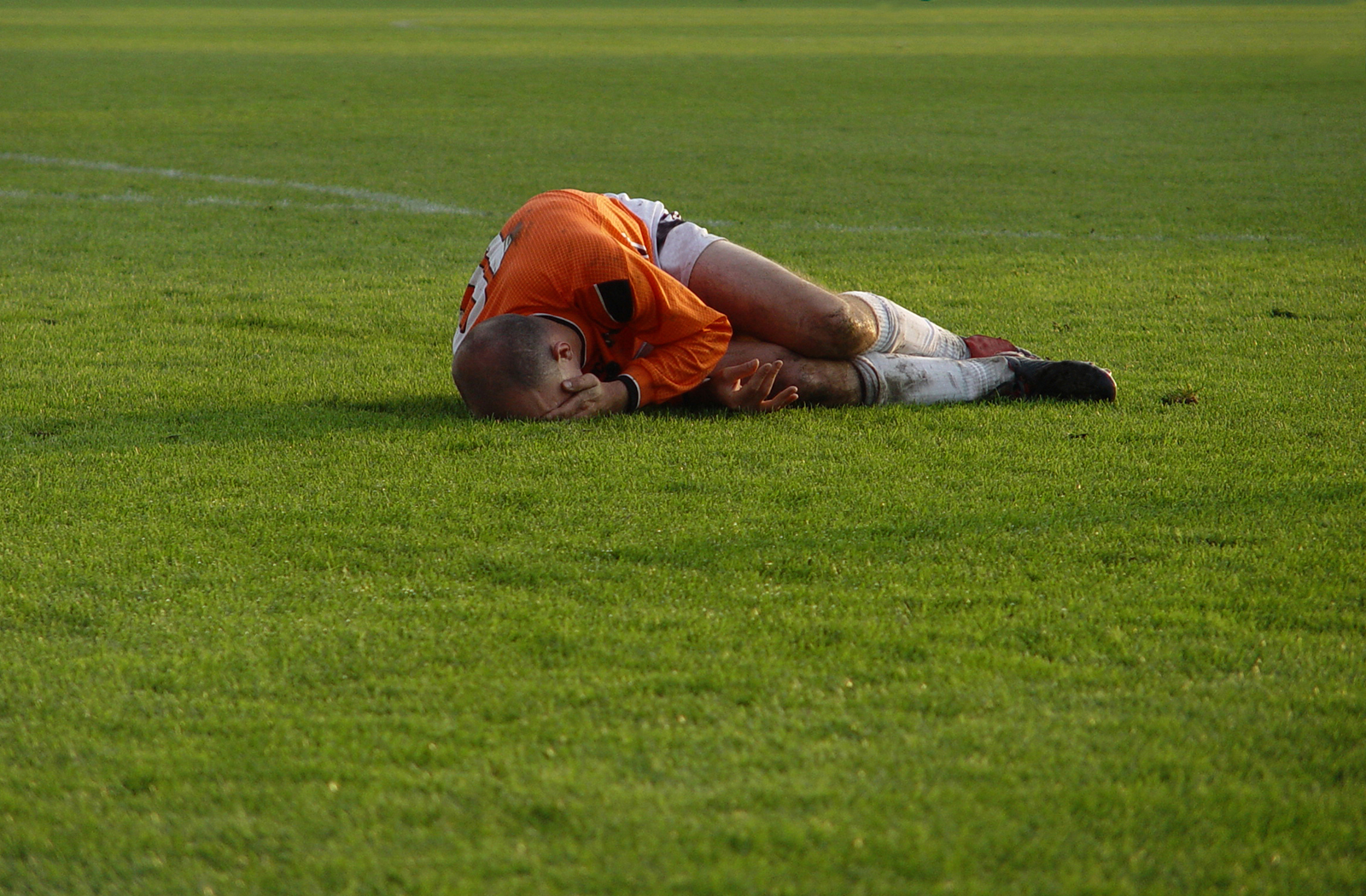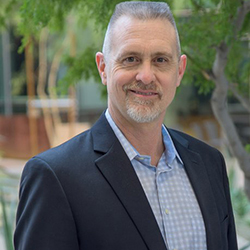
Transforming Concussion Care for Athletes at All Levels

Being active is an important element of a healthy lifestyle, but head injuries sideline athletes at all levels of sport. To revolutionize concussion management for athletes, Sway Medical, Inc. developed an innovative technology transforming the field of concussion care.
Providing a comprehensive, standardized approach, the Sway app helps identify athletes in need of medical care for concussion, facilitating better recovery and safer returns to play. U of A College of Medicine - Phoenix faculty, and Banner Sports Medicine specialists, have integrated the Sway app into their practice to support athletic trainers and enhance patient care.
"It's a uniform approach that allows athletic trainers to systematically evaluate concussions, monitor symptoms and perform cognitive and balance tests. While it's not as in-depth as clinical tests, it serves as a crucial initial assessment tool," explained Steven M. Erickson, MD, director of the Division of Sports Medicine/Concussion at the University of Arizona College of Medicine – Phoenix and Banner Sports Medicine chief of Primary Care.

There are an estimated 1.7 to 3.8 million traumatic brain injuries (TBIs) each year in the United States, according to the CDC, with 10 percent resulting from sports and recreational activities. Among American children and adolescents, sports and recreational activities contribute to over 21 percent of all concussions.
The app makes it easier for athletic trainers to deliver standardized care, ensuring athletes receive a baseline assessment, which is essential for proper concussion diagnosis and treatment.
"With baseline testing in the community, if an athlete gets a concussion, we repeat the balance testing in the clinic and evaluate them. We often provide vestibular therapy, and the Sway app helps validate our treatment. We partner with high schools to assist athletic trainers, making their job easier and ensuring standardized care," Dr. Erickson said.
This collaboration ensures that athletic trainers have the necessary tools and support to deliver high-quality care to concussed athletes, facilitating better management and quicker recovery. The Sway app has been adopted by amateur and professional sports organizations to not only identify concussions but monitor the athletes’ progress as they follow the treatment plan prescribed by their doctors.
"Baseline concussion testing is primarily symptom-based, involving cognitive tests. With the Sway app, we ask them to log on as the patient and monitor their symptoms daily during the recovery,” said Dr. Erickson. “All the Major League umpires and minor league umpires have it on their phone, and they answer questions about their symptoms. Every single day in their recovery, with the athletic trainers, they monitor their symptoms. They also have a choice to do cognitive testing on the app.”
Effective use of the Sway app requires proper training for athletic trainers. "It helps identify those needing vestibular therapy. Physical therapists then evaluate their vestibular system and provide a treatment plan. This aids in quicker recovery from concussions," said Dr. Erickson. Training ensures that athletic trainers can accurately administer and interpret the tests, allowing them to identify athletes who require further specialized care. As a result, athletes receive targeted treatment that facilitates a faster and more complete recovery.
Looking ahead, Dr. Erickson envisions broader use of the Sway app, potentially revolutionizing concussion management nationwide. "We want to validate the app through research, aiming for national adoption. This would improve the standard of care for evaluating sports concussion vestibular dysfunction in athletes across the country."
Supporting the app through research and promoting its national adoption would elevate the standard of care for athletes, ensuring that comprehensive concussion evaluations are accessible to all.
About the College
Founded in 2007, the University of Arizona College of Medicine – Phoenix inspires and trains exemplary physicians, scientists and leaders to advance its core missions in education, research, clinical care and service to communities across Arizona. The college’s strength lies in our collaborations and partnerships with clinical affiliates, community organizations and industry sponsors. With our primary affiliate, Banner Health, we are recognized as the premier academic medical center in Phoenix. As an anchor institution of the Phoenix Bioscience Core, the college is home to signature research programs in neurosciences, cardiopulmonary diseases, immunology, informatics and metabolism. These focus areas uniquely position us to drive biomedical research and bolster economic development in the region.
As an urban institution with strong roots in rural and tribal health, the college has graduated more than 1,000 physicians and matriculates 130 students each year. Greater than 60% of matriculating students are from Arizona and many continue training at our GME sponsored residency programs, ultimately pursuing local academic and community-based opportunities. While our traditional four-year program continues to thrive, we will launch our recently approved accelerated three-year medical student curriculum with exclusive focus on primary care. This program is designed to further enhance workforce retention needs across Arizona.
The college has embarked on our strategic plan for 2025 to 2030. Learn more.